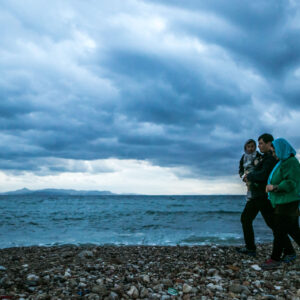On World Refugee Day (June 20) Caritas Internationalis wants to highlight the strength and courage of millions of people worldwide who have left their homelands and have undertaken dangerous journeys to escape conflict, persecution or violence, extreme poverty, natural disasters or climate change. In over 200 countries, Caritas is a witness to the inspiring hope ...
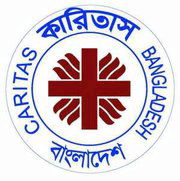
Address: 2, Outer Circular Road, Shantibagh, Dhaka-1217, Bangladesh
Telephone: +880 2 9339524 Fax: +880 2 8314993
Email: [email protected]
www.caritasbd.org
Caritas Bangladesh has its headquarter in the capital Dhaka and has eight other diocesan offices. It works on integrated development, disaster management and human resource development. Over 6000 staff and volunteers implement its programmes at national and diocesan level. Caritas Bangladesh began in 1967 as Caritas East Pakistan. Following the devastating cyclone of November 1970, it was re-organised and became known as the Christian Organisation for Relief and Rehabilitation (CORR). The name Caritas was re-introduced in 1976.
Caritas Bangladesh is implementing over 90 ongoing projects relating to these six goals/sectors:
Improvement of the Quality of Life of the Extremely Poor and of Vulnerable Communities.
Livelihood promotion and economic development of the extremely poor; inclusive development and social reintegration; safe migration; early childhood development; promotion of improved housing conditions; protection of street children; psycho-social care; establishment of justice and peace.
Promote Education Rights and Inclusive Quality Education.
Provide education opportunities for disadvantaged and hardest-to-reach children through ensuring access to quality pre and primary education; enhance teachers’ professional and moral skills; create opportunities for technical skills through training and support for employment/self–employment.
Improve Health Education, Care and Public Health Services.
Provide primary health care; maternal health care; health and nutrition; adolescents’ health care; pro-life reproductive health education and natural family planning; sexually transmitted infections (STI), HIV and AIDS; tuberculosis, leprosy and other communicable diseases; prevention, treatment and aftercare services for drug addiction and sex abuse.
Strengthen Disaster Response and Community Resilience.
Strengthen community-based early warning and rescue systems; immediate food, cash and non-food item distribution; employment creation through repair of damaged infrastructure; livelihood support; construction of flood and cyclone shelters; psycho-social care.
Strengthen Ecological Sustainability.
Livelihood promotion and socio-economic development of the poor; capacity building on organic farming; judicious and sustainable use of natural resources; indigenous agri-aqua-livestock variety and biodiversity conservation; women’s empowerment; building the coping capacity of community people to climate change situations; integrated holistic approaches to establish climate justice, etc.
Improvement of the Living Standards of Indigenous Peoples.
Indigenous-people-friendly social and financial institutional development (Traditional Social Organisation (TSO), and the Cooperative Credit Union (CCU)); community empowerment; land retention, including mapping; legal support; economic development; practicing Sustainable Agriculture (SA); cultural development.
Many Caritas members are among Caritas Bangladesh’s partners, including Caritas Australia, Luxembourg, Switzerland, Austria, Belgium, Germany, Italy, Japan, India, Nepal, Hong Kong, Korea, Taiwan, CRS, Poland, Spain, Macau, CAFOD, Cordaid and Secours Catholique. Other valuable partners include MISEREOR, Kindermissionwerk, Andheri Hilfe, Bridge of Light and Refugee Action-UK.
Updates from Bangladesh
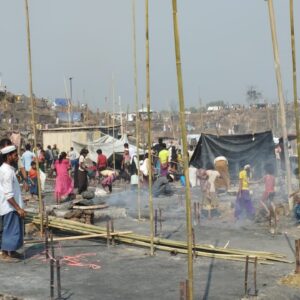
Several fires have broken out in Rohingya camps and has left several refugees without shelter even within settlement camps. The latest fire that broke out on 5 March left an estimated 16,000 Rohingyas from over 3,000 households without a home. In addition to the loss of homes, health centres and learning facilities were also destroyed ...
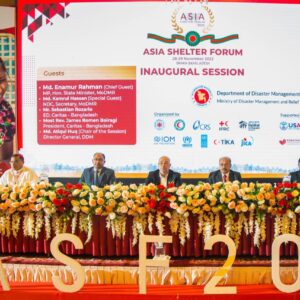
The “Asia Shelter Forum” (ASF) annual conference 2022 hosted by the Government of Bangladesh, under the leadership of the Department of Disaster Management (DDM) with technical and financial support from ASF organizing committee members, is being held in Dhaka from 28-30 November. The theme of the conference is “Resilient Shelters and Settlements.” As Asia is ...
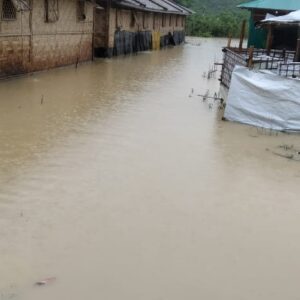
Four hundred villages in Cox's Bazar have been flooded after days of rain. Most people in the area say they have never seen severe flood like this in the last decade.
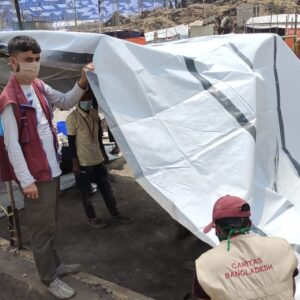
The Rohingya people have once again faced a life or death situation, in the form of the devastating fire that recently hit the world’s largest refugee camp where they are living in Bangladesh.
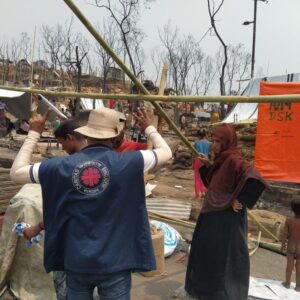
Less than a month after a huge fire ravaged the world's largest refugee camp, Caritas Bangladesh raises alarm about the safety of the Rohinyga in view of the monsoon season.
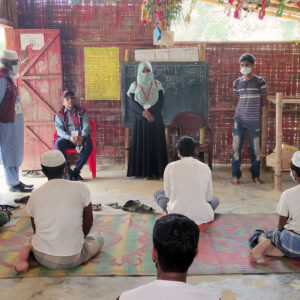
The high density living conditions in the Rohingya refugee camps in Bangladesh are having a serious impact on the physical and psychological well-being of the refugees, especially on children, women and refugees with disabilities.
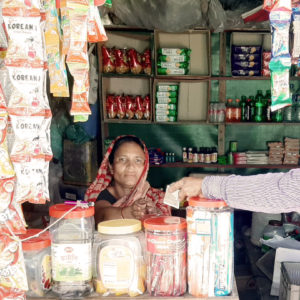
Caritas found Juthika’s family to be extremely vulnerable and decided to give her training and help her do a small business plan.
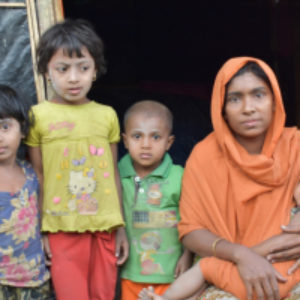
Senowara’s labour pains had already started when she fled from Myanmar 16 months ago. After five days walking through the forest, she could hold on no longer. Her child was born by the roadside, beneath a tarpaulin, just an hour and a half after she crossed into Bangladesh. We first met Senowara, a Rohingya refugee, ...
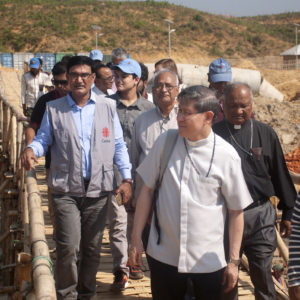
Standing in a refugee camp in Bangladesh, Cardinal Luis Antonio Tagle said, “This camp is a cry to the whole world for a better politics based on compassion and solidarity.” The Caritas Internationalis president visited Cox’s Bazar in Bangladesh 3-4 December. He saw how Caritas is helping provide vital shelter, water, sanitation and hygiene, living ...

